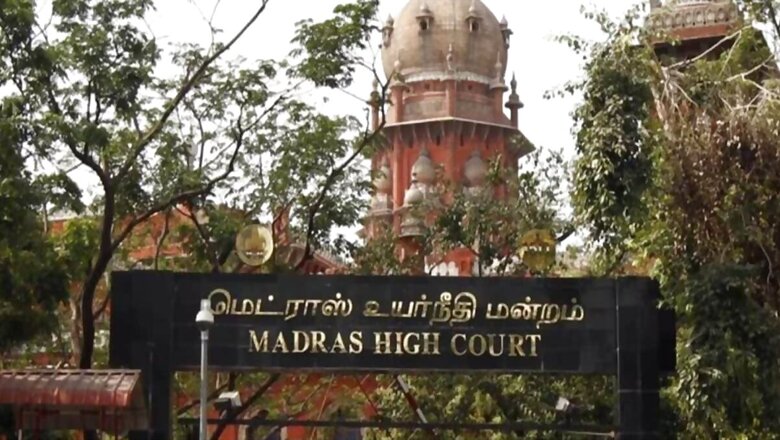
views
The Madras High Court recently termed the denial of pension to the family of a deceased government employee even 36 years after his death, an “inhumane act”. The court condemned the responsible government officials for trying to ensure that “not even a meager amount by way of family pension should go to the hands of the widow of the deceased lower grade Government servant”.
“This kind of attitude instead of being termed as unlawful, arbitrary etc., this Court in one word can explain the same as ‘Inhuman’,” said the division bench of Justices R Suresh Kumar and C Kumarappan.
The court was dealing with an appeal filed by the district administrations of Chennai and Kancheepuram against a high court order passed in 2017 allowing payment of pension to the family of a village assistant who had died in harness during his service at the office of the tahsildar, Mambalam-Guindy, in 1987.
After the village assistant’s death, his wife had requested for sanctioning a family pension, which was, although allowed by the concerned sub-collector and the district collector, was not released at the level of the tahsildar office.
Consequently, the widow approached the high court in 2004, seeking relief. In 2017, a single-judge bench of the high court ordered the revenue department to do the needful with regard to granting a pension to the family of the deceased.
However, the department did not accept the decision of the writ court and filed an appeal.
The division bench noted that during the pendency of the present appeal, the wife of the deceased employee also died, and therefore, the couple’s son, who himself was 60 years old at present and was already suffering from some ailment, had been impleaded in the matter.
While emphasising that the job of a village assistant though being a small post, is very pertinent and important in certain contingencies, the court said that it was not able to understand “as to why the poor lady was made to run from pillar to post for the past several years without paying any benefits”.
The court stressed that there could have been some confusion with regard to the office from which the family pension of the deceased employee had to be cleared, but it, being an internal matter of the department to be sorted out, should not have been made a reason to trouble the deceased employee’s family.
“The employee died in 1987, we are in 2023, 36 long years have gone…For these 36 long years, a poor widow of a lower grade Government servant has been struggling throughout the rest of her life to get the lawful benefits from the Government, but she failed, despite the Court ordered it in the year 2017, i.e., after 13 years of the litigation instituted in this Court,” the court pointed out.
“This kind of situation can never be placed against any person that too on the family members of the deceased employee of the State Government,” the court asserted.
It opined that “the abdication of duty and shirking the responsibility now become a routine affair for the people who are sitting in a position to take a decision quickly to act upon in the interest of public and public good”.
Therefore, asking the state government of Tamil Nadu to treat the present matter as a model case, and to think of making an amendment to the existing law and have an effective mechanism to see that, the retirement-cum-death benefits as well as the pensionary benefits and also the family pension benefits of a deceased government employee, whatever be the entitlement accordingly, is paid and continued to be paid, within a maximum period of six months.
“To achieve this goal we believe and expect that the State Government will come forward with a permanent solution by having a Scheme to streamline the System,” it said.
Regarding the case at hand, the division bench dismissed the appeal and ordered that the benefits as directed by the single-judge bench shall be calculated and be paid with arrears to the son of the deceased employee within a period of eight weeks from the date of receipt of court judgement copy.


















Comments
0 comment